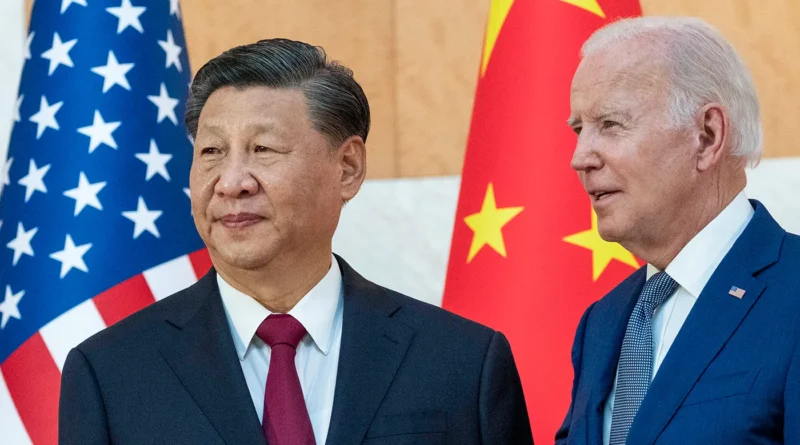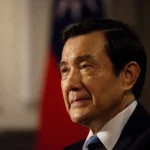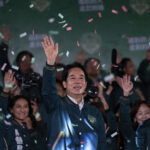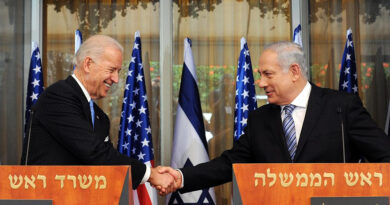Much to talk about, little to agree
XULIO RIOS
China and the US are trying to turn the page on their most recent disagreements, including the case of the alleged spy balloon or Nancy Pelosi's visit to Taipei. But what guarantees can their respective diplomacies offer to avoid a repetition of the grievances? Few. Hence so much reluctance towards a Biden-Xi summit, the celebration of which is going through various signals. Cautiously optimistic, say both parties, waiting for a confirmation that resists.
In recent months, Washington and Beijing have exchanged visits at the highest level. They have also managed to recover the tone of the economic dialogue. Even more relevant, a US representation (Cynthia Carras) participated in the recent Xiangshan security forum in Beijing and in the CIIE trade fair in Shanghai, the same and for the first time since its inception in 2018. The increase in the number of Direct passenger flights between China and the US (currently at 6 percent of 2019 volume) is another positive sign.
This “thawing” dynamic, very welcome by both parties, coexists, however, with resistance to altering fundamental strategies. And that will hardly change in the short term, or perhaps ever. The offensive against the Chinese technology industry, the inclusion of Chinese companies on blacklists or restrictions on investment in China, as well as the persistence of strategic pressure warn that intransigence is still in control and rivalry is here to stay. What's more, also to expand, especially in what China considers its core interests and which for the US are the focuses where it can exert maximum pressure. With that attitude, the atmosphere will continue to be heated no matter how much the rhetorical will expressed is to appease. Let no one get their hopes up.
Perhaps the most revealing data is the upcoming appointment of Kurt Campbell as number two in the State Department. Campbell, a hard-liner against China, is the architect of President Biden's foreign policy on this issue, which is a continuation of what he also designed for Obama, the “Pivot to Asia.” This would indicate that pressure will persist at the bilateral level, that the alliance policy will be accentuated as a pincer in its immediate regional environment, or that Taiwan will continue to be talked about a lot. What they call “competition” in the White House and the Pentagon will have the strongest supporter in him, but also the necessary zeal to prevent everything from devolving into an open conflict. This is what they also call “responsible management of differences.”
A Biden-Xi summit taking advantage of the APEC framework can help to somewhat put the antagonism on track, but not dilute it. And less than a year before the next elections in the United States, when it is foreseeable that hawks from all possible sides will turn China into the favorite target of all imaginable diatribes. Both Democrats and Republicans agree on that. Get ready.
Undoubtedly, dialogue is always advisable. Essential to minimally stabilize their ties, something essential in view of the importance of their ties and the global significance of their differences. Another thing is that it contributes to rebuilding a certain level of mutual trust if it is not accompanied by concrete measures to mitigate conflicts.
Neither China nor the US are going to change their respective strategies, nor are both going to convince themselves otherwise. Biden does not believe Xi when he says that China does not seek to replace the US in global hegemony and Xi does not believe Biden when he assures that he does not want to stop China's rise.
The rivalry with China is the axis of Biden's foreign policy and that will continue. And Xi is not going to lower his neck. There may be relative relief in this or that aspect, but there is no room for a sensational reconstruction of mutual trust. That time passed, probably irreversibly. And it can be imagined that both have learned their lesson.
Despite this, with the elections in Taiwan just around the corner, it is essential that this dialogue be protected in a very solid way, avoiding a hypothetical crisis that could become greater than the one experienced in August with the visit of Nancy Pelosi. to Taipei.
The international situation would require very active cooperation from the two major countries in the face of the accumulation of crises in numerous areas. It would be desirable if they talked about it a lot and agreed more. But even here, expectations are limited.













